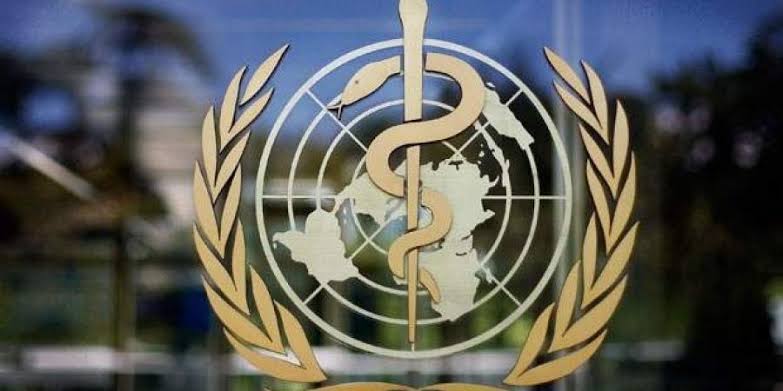By Asmau Ahmad
The World Health Organisation (WHO) says millions of refugees and migrants in vulnerable situations, face poorer health outcomes than their host communities, especially where living and working conditions are sub-standard.
The global health agency said on Wednesday that the report was according to the first WHO World report on the health of refugees and migrants.
“Around the world, millions of refugees and migrants in vulnerable situations, such as low-skilled migrant workers, face poorer health outcomes than their host communities.
“Especially where living and working conditions are sub-standard, this has dire consequences for the probability that the world will not achieve the health-related Sustainable Development Goals for these populations,” it said.
The WHO Director-General, Dr. Tedros Ghebreyesus, said there were some one billion migrants globally, about one in eight people.
According to him, the experience of migration is a key determinant of health and wellbeing, and refugees and migrants remain among the most vulnerable and neglected members of many societies
“This report is the first to offer a global review of refugee and migrant health, it calls for urgent and collective action to ensure they can access health care services that are sensitive to their needs.
“It also illustrates the pressing need to address the root causes of ill health and to radically reorient health systems to respond to a world increasingly in motion,” Ghebreyesus said.
He said that based on an extensive review of literature from around the world, the report demonstrates that refugees and migrants are not inherently less healthy than host populations.
Ghebreyesus said it was the impact of the various suboptimal health determinants, such as education, income, housing, and access to services.
He said the impact was also compounded by linguistic, cultural, legal, and other barriers and the interaction of these during the life course, that are behind poor health outcomes.
The report reiterated that the experience of migration and displacement were key factors in a person’s health and wellbeing, especially when combined with other determinants.
“For example, a recent meta-analysis of more than 17 million participants from 16 countries across five WHO regions found that, compared with non-migrant workers, migrant workers were less likely to use health services.
“Also, more likely to have an occupational injury. Evidence also showed that a significant number of the 169 million migrant workers globally are engaged in dirty, dangerous, and demanding jobs and are at greater risk of occupational accidents.
“Others are injuries, and work-related health problems than their non-migrant counterparts, conditions exacerbated by their often limited or restricted access to and use of health services,” it said.
The report demonstrated critical gaps in data and health information systems regarding the health of refugees and migrants.
It said while data and evidence are plentiful, they are fragmented and not comparable across countries and over time, adding that these mobile populations are sometimes identifiable in global datasets used for Sustainable Development Goals (SDGs) monitoring.
It said that health data are often missing from migration statistics and migratory status variables are often missing from health statistics.
The report said that such made it difficult to determine and track the progress of refugees and migrants towards the health-related SDGs.
WHO’s Deputy Director-General, Dr. Zsuzsanna Jakab said: “It is imperative that we do more on refugees and migrants’ health but if we want to change the status quo.
“We need urgent investments to improve the quality, relevance, and completeness of health data on refugees and migrants,” she said.
Jakab said that the WHO needed sound data collection and monitoring systems that truly represent the diversity of the world population and the experience that refugees and migrants face.
According to her, the lack of comparable data on the health of refugees and migrants across countries and over time often impedes good policy development toward health equity.
Jakab said other policies and frameworks do exist that address and respond to the health needs of refugees and migrants.
The report said that however, disparities in health outcomes remain and the report showed that they are mainly due to a lack of meaningful and effective implementation of policies.
Director of WHO’s Health and Migration Programme, Dr. Santino Severoni, said health does not begin or end at a country’s border.
Severoni said that migratory status should therefore not be a discriminatory factor but a policy driver on which to build and strengthen healthcare and social and financial protection.
He said the organisation must reorient existing health systems into integrated and inclusive health services for refugees and migrants, in line with the principles of primary health care and universal health coverage.
The report said that refugees and migrants can introduce innovative ideas that drive economic and social transformation.
It highlighted the extraordinary contributions of refugee and migrant healthcare workers to the COVID-19 frontline response.
The report said that one of the most notable was the contributions of migrants in several countries of the Organisation for Economic Co-operation and Development.
It said it was particularly significant when in some countries as many as half of doctors or nurses are foreign-born.
It said health systems were only as strong as their weakest link.
The report said the inclusion of refugees and migrants was a worthwhile investment for the development and wellbeing of societies around the world.




